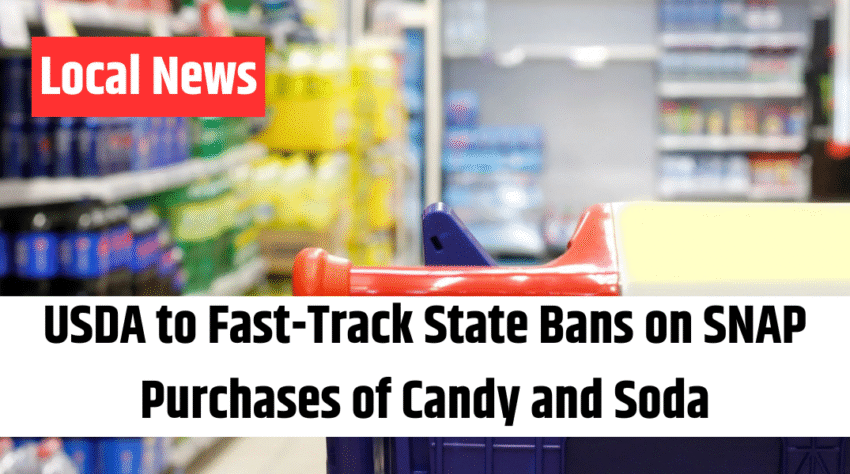As part of a broader initiative to “Make America Healthy Again,” the Trump administration is fast-tracking efforts to restrict purchases of soda and candy under the Supplemental Nutrition Assistance Program (SNAP). According to The Wall Street Journal, the U.S. Department of Agriculture (USDA) is moving swiftly to review and approve state-led proposals that would prevent SNAP recipients from buying certain sugary and processed items.
On April 15, Arkansas and Indiana formally submitted requests to the USDA seeking permission to implement such restrictions. That same day, Idaho’s governor signed a new law banning the use of SNAP benefits to purchase candy and soft drinks. All three states are led by Republican governors.
Governors in other Republican-led states—including West Virginia and Utah—have also signaled plans to follow suit, expressing support for more restrictive SNAP guidelines aimed at promoting healthier food choices.
The push aligns with the goals of Health Secretary Robert F. Kennedy Jr., who has spearheaded the “Make America Healthy Again” campaign. A key pillar of the initiative includes reducing SNAP-funded purchases of foods considered harmful to long-term health.
Also Read – Sen. Jim Justice Praises Trump’s Coal Executive Orders: ‘Really Proud’
Newly appointed USDA Secretary Brooke Rollins has encouraged governors to launch pilot programs that test these changes. Rollins emphasized that unlike previous administrations, which routinely denied such waivers, the current administration is open to innovation in the name of public health.
Still, the proposals are drawing criticism.
Health experts and policy advocates argue that there’s no clear evidence restricting soda and candy from SNAP has a measurable effect on improving nutrition or health outcomes. Others have raised concerns about the ambiguity of food definitions—such as what qualifies as “candy” or “soda”—warning that items like granola bars or fruit juices could be unfairly restricted.
Grocery store owners have also voiced worries, suggesting that unclear rules and increased complexity could discourage retailers from participating in the SNAP program altogether.
As the debate continues, the USDA’s shifting stance under the Trump administration is setting the stage for potentially significant changes to how food assistance is administered in the U.S.
